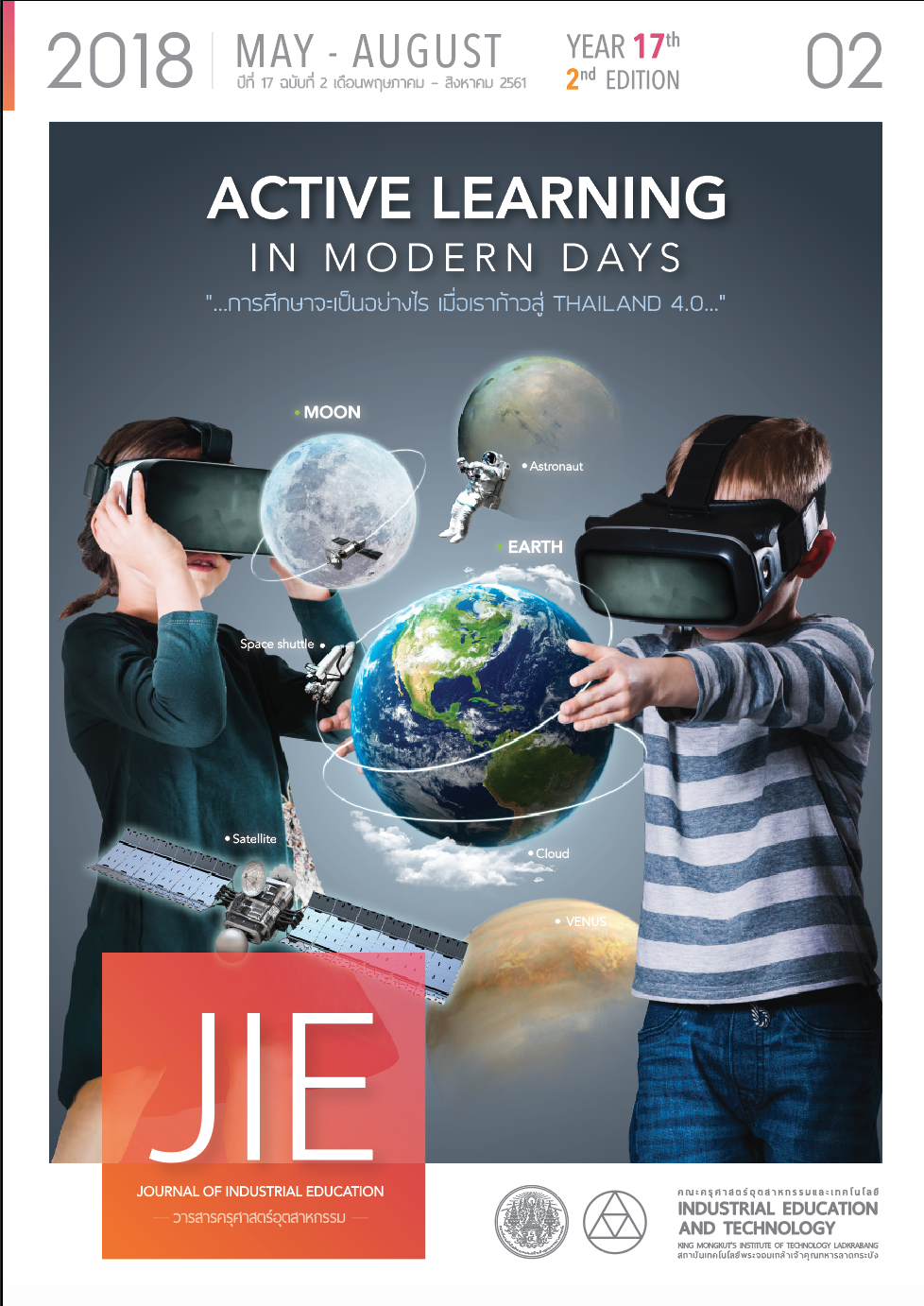THE BEST PRACTICE IN THE DEVELOPMENT OF SMALL SCHOOL UNDER THE SAMUTPRAKAN PRIMARY EDUCATION SERVICE OFFICE 2
Keywords:
best practice guidelines in improving the quality of small schools, the quality of small schools the best practiceAbstract
The purpose of this research was to Establish the best practice guidelines in improving the quality of small schools under the Office of Samutprakarn Primary Education Area 2. The study was divided into two phases. The first phase was to identify the lesson learned as the best practice guidelines. The data collection was done by studying the related documents using content analysis approach and by conducting an interview with the 25 samples of the primary informants selected using purposive sampling technique including directors, vice-directors, school teachers, student heads and boards of directors of the following types of schools: 1) the ones evaluated and awarded by royal, 2) the ones evaluated by external quality assurance committees on the third round and 3) the ones evaluated by internal quality assurance committees and ranked at excellent level. The second phase was to establish the best practice guidelines for improving the quality of small schools under the Office of Samutprakan Primary Education Area 2. The data collection was done using Focus group meeting methodology. The focus groups were conducted twice with the 40 samples selected using purposive sampling technique. These samples as the key informants were directors, teachers, student heads, boards of directors from small schools under the Office of Samutprakarn Primary Education Area 2. The data then were analyzed with content analysis.
The research findings revealed the best practice guidelines for quality development of small schools under the Office of Samutprakan Primary Education Area 2 which consist of 6 dimensions as follows. 1. In terms of Student Affairs Development activities, the schools should provide any activities enhancing well-round academic skills, morals and ethics, holistic health both body and mind, art and aesthetics, music and sports, thinking skills, and other activities which directly effect students’ achievement. 2. In terms of teacher’s ethics and teacher’s efficiency, the schools should possess qualified teachers who have capabilities of providing appropriate teaching and learning methodologies and instructions on the basis of student centered approach, and who can perform excellent tasks leading to classroom management effectiveness and efficiency. 3. In terms of administrative roles, the school leaders or principles should possess human resources management skills , budgeting skills and leadership skills. 4. In terms of efficiency of school development, the schools should have a system for managing teaching and learning effectively as well as clear missions and goals. In addition, the school should follow the laws related and proceed the quality assurance regularly. In addition, the schools’ operation should be implemented under the strategic plans and yearly action plans. 5. In terms of premises and facilities management, the schools should provide students learning environment, facilities and buildings which encourage students to develop their full potential and the schools should keep maintenance plan. Also, the number of premises should meet the user needs and expectation. 6) In terms of community’s participation, the schools must get all stakeholders consisting of parents and community members involved with school planning for educational management.
References
[2] Bureau of Standards and Quality Assurance (Public Organization) (2010) Quality Assurance for Education, Bangkok, Office of the Secretary of the Council for Education.
[3] Panya Lekkha. (1998),The Development of Personnel Affecting Teacher Behavior Adjustment According to the Teachers Professional Standards in Educational Opportunity Expansion Schools. Office of the National Primary Education Commission 4. Education thesis (Education Administration) Nonthaburi: Graduate School Sukhothai Thammathirat Open University
[4] Somsak Dalalprasit (2005). Teachers of teachers and professional teachers. Journal of Teacher Education 21 (2): 12.
[5] Jittima Wongsri (2009). Quality of education and performance of teachers. Journal of Education Khonkaen University. Vol. 32. Issue 1. Page 1
[6] Office of the Commission for Teacher Education and Educational Personnel (2009) Criteria and methods for teaching civil servants and educational personnel.bangkok
[7] Yukl, G.A. (2001). Leadership in the organization (2nd ed.). New Jersey: Prentice-Hall.
[8] Pichaya Pa Khantong (2011) Management of schools that meet the standard. Office of Chumphon Educational Service Area 2, Chumphon Province. Master Thesis Suan Dusit Rajabhat University
[9] Aumrung Chandravijit and his team (2008). The school is perfect. (Accessed on January 22, 2018). (https://www.moe.go.th/moe/th/cms_group/detail.php?NewsID=140&Key=aca_article)
[10] Office of the National Education Commission. (2001). Standard of Education for External Quality Assessment: Basic Education Level. Bangkok: Bureau of Standards and Quality Assessment. (Public Organization)
[11] Satid Chawadee (2008). Participation in school administration of basic education committee according to the opinion of school administrators under the jurisdiction of Bangkok Metropolis. Thesis Master of Education, Phranakhon Rajabhat University
[12] Pakkapon Conservation Secretary 2558. Development of educational quality management indicators for international standard schools. Journal of Industrial Education, 14 (3). 104
[13] Ministry of Education. 2002, National Education Act, BE 2542 (1999) and Amended (No. 2), 2002.
Bangkok: The Organization for Delivery and Delivery
Downloads
Published
How to Cite
Issue
Section
License
"The opinions and contents including the words in papers are responsibility by the authors."
"ข้อคิดเห็น เนื้อหา รวมทั้งการใช้ภาษาในบทความถือเป็นความรับผิดชอบของผู้เขียน"



